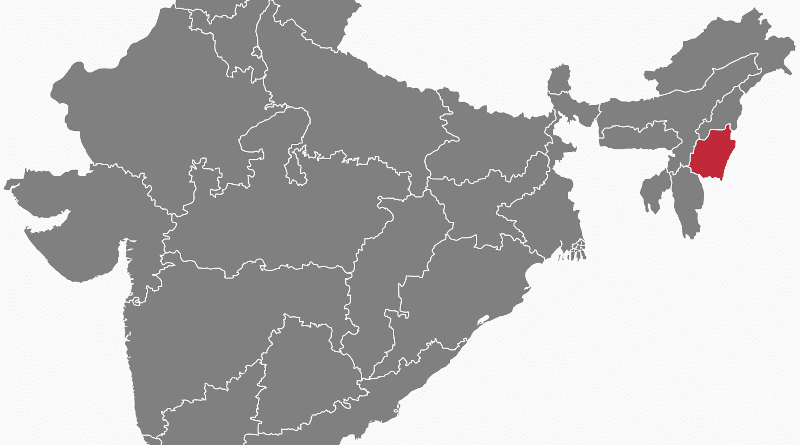Ethnic Cleansing And Genocide In Manipur – OpEd
By Aiman Khan
The north-eastern state of Manipur has been witnessing a wave of ethnic violence since early May, resulting in the deaths of at least 98 people and the displacement of thousands more.
The clashes erupted after a rally by indigenous communities against the demand of the Meitei community, the dominant ethnic group in the state, to be granted Scheduled Tribe status under the Indian Constitution. The Meiteis who are mostly Hindus and account for about 50% of the state’s population, have been seeking this status for years, hoping to gain access to wider benefits such as health, education and government jobs. However, other ethnic groups, many of whom are Christians and live in the hilly regions of the state, fear that this would erode their rights and resources and threaten their identity and culture.
The situation turned violent on May 4, when a mob of Meiteis attacked homes, vehicles, churches and temples belonging to the Kuki and Zo tribes in and around Churachandpur district, bordering the Imphal Valley. Eyewitnesses reported that houses and churches were set on fire and charred vehicles were strewn across roads. Some videos and photos showed angry mobs wielding machetes and guns. Many tribal families fled their homes and sought refuge in army camps or neighbouring states. According to some reports, at least 80 tribals were killed in the violence, while hundreds were injured.
The state government, led by the Hindu-nationalist Bharatiya Janata Party (BJP), has been accused of not doing enough to prevent or stop the violence. The government issued “shoot-at-sight” orders and deployed thousands of troops and paramilitary forces to restore law and order, but many critics say that these measures were too late and too weak. Some also allege that the government has been biased towards the Meitei community and has ignored the grievances and demands of the tribal communities. The government has denied these allegations and has blamed “external forces” for instigating the violence.
The violence in Manipur has drawn attention to the long-standing ethnic tensions and conflicts in the state, which have their roots in colonial history, migration patterns, land disputes and political representation. The state has also witnessed several insurgencies and separatist movements by various armed groups over the years, demanding autonomy or independence from India. The violence has also exposed the failure of the central government to address the issues and aspirations of the north-eastern region, which is often neglected and marginalized by mainstream politics and media.
The Congress party, which is the main opposition party in Manipur and at the national level, has accused the BJP-led government of mishandling the crisis and failing to protect the lives and properties of the people. The party has demanded a judicial inquiry into the violence and compensation for the victims. The party has also blamed the BJP for creating communal polarisation and playing divisive politics in the state.
The Communist Party of India (Marxist), another opposition party, has condemned the violence and called for an immediate end to the bloodshed. The party has also criticised the government for imposing internet shutdowns and curfews, which have hampered communication and relief work. The party has urged the government to initiate a dialogue with all stakeholders and address the grievances of all communities in a democratic manner.
An independent analyst, Sanjoy Hazarika, who is the director of the Commonwealth Human Rights Initiative and an expert on north-east India, has said that the violence in Manipur is a result of decades of neglect and alienation of the region by successive governments. He has said that the state needs a political solution that respects the diversity and aspirations of its people, rather than a military one that relies on force and repression. He has also said that the violence reflects a deeper crisis of governance and accountability in India, where human rights violations and impunity are rampant.
The ethnic violence in Manipur is not only a humanitarian crisis, but also a threat to India’s unity and diversity. It is a clear case of ethnic cleansing and genocide, as defined by international law, as it involves the intentional displacement or destruction of a particular group of people based on their ethnicity or religion. The government has a duty to protect its citizens from such atrocities and to ensure justice and reconciliation for the victims. It also has a responsibility to promote dialogue and harmony among different communities and to respect their rights and dignity. Only then can Manipur achieve peace and development for all its people.
Aiman Khan is a Lahore based social activist and an independent researcher with a Master’s degree in Mass Communication from BNU, Lahore.

